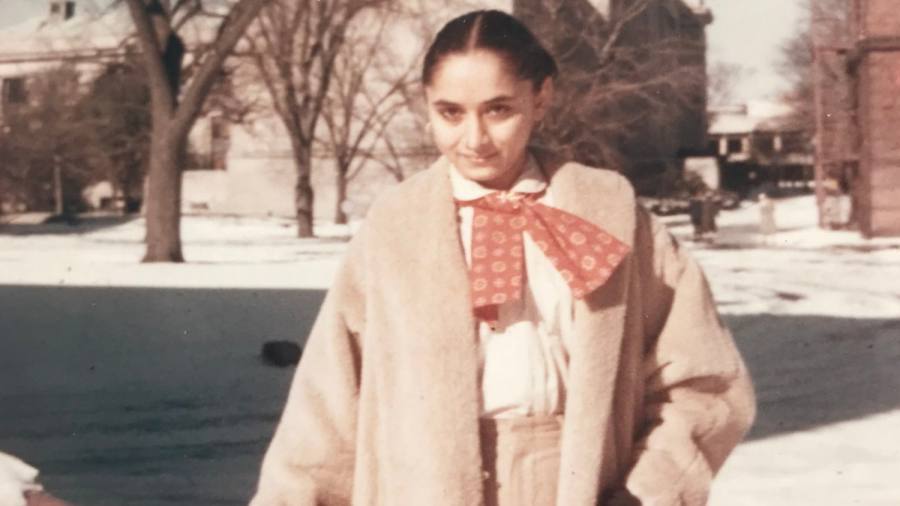Padma Desai had both a scholarly and a personal understanding of the impact that systems of total control can have on human productivity and welfare.
As an economist, Desai, who has died aged 91, calculated the damage caused by misallocation under the Soviet command economy. And as an Indian woman, she battled patriarchal laws to divorce her emotionally abusive husband.
Desai was born in Surat, India in 1931, to Shanta and Kalidas, a Cambridge-educated literature professor. The third of four siblings, she excelled in school and earned a scholarship to study economics at what was then Bombay university in 1951. While at university, her family left her with little choice but to marry her college fling.
Desai’s academic brilliance won her a scholarship to pursue graduate studies at Harvard University. In 1955, she sailed alone on the aptly named SS Independence.
While at Harvard, Desai took courses with the economists Alexander Gerschenkron and Robert Solow. Decades later, she explained the deceleration in Soviet growth rates using Solow’s insights, which separated long-term growth from technological productivity and from growth driven by capital.
Desai extended Gerschenkron’s critique of Soviet growth in her 1989 book Perestroika in Perspective. In a first-of-its-kind empirical analysis, she demonstrated the loss of efficiency that resulted from the misallocation of resources within the command economy, and estimated the losses suffered by each sector.
Before examining the Soviet system, Desai applied the same methods to analyse different sectors in India, adapting Soviet-American economist Wassily Leontief’s techniques. She received her doctorate in 1960. But her academic success was accompanied by a sense of personal defeat — she was trying, and failing, to leave her difficult marriage.
In 1959, Desai joined the Delhi School of Economics as an associate professor. Soon after, the economist Jagdish Bhagwati — whom she first befriended in 1956 — also joined the faculty. So began a life-long intellectual and personal partnership.
In their 1968 book India: Planning for Industrialization, Bhagwati’s expertise in foreign trade combined with Desai’s empirical understanding of every sector of the Indian economy produced a landmark critique of India’s industrial planning system. They highlighted the irrationality of the licensing and controls system. But their work was not immediately accepted. Their findings eventually helped liberalise the Indian economy after their ideas percolated into government reports and influenced technocrats such as Manmohan Singh.
In 1968, Bhagwati, an emerging superstar, received an offer from MIT. He had been in love with Desai since their first meeting, and had hoped to marry her in Delhi. But the pair encountered divorce laws that were even more controlling than the economic regulation that they critiqued.
After years of futile attempts, Desai got divorced in 1969, by converting to Christianity, because religious conversion was grounds for divorce. But it would take a second divorce decree in Massachusetts in 1977 to protect the couple’s Mexican marriage certificate from Indian laws.
Despite Desai’s personal setbacks, she was an exceptional mentor to students at the Delhi School of Economics, and her book with Bhagwati eventually became a bestseller. However, she received less credit for it, which prompted her shift to studying the Soviet economy — a field in which she had a better chance of making a name for herself. Her work was published in top journals.
The economics profession rewards a high degree of specialisation and pejoratively dubs scholars such as Desai working across different subfields as country experts. Yet in Desai’s view, there was little point in studying trade deficits without understanding industrial policy, as the absence of price signals to provide co-ordination was the root of the problem in centrally controlled economies. Mirroring Tolstoy’s portrayal of families, she showed that while developed countries are often alike, the economic malaise of each stagnant nation must be studied in its own context.
Desai joined Columbia University as a professor of economics in 1980, along with Bhagwati. Her impact extended beyond academia — she advised US policymakers and enlightened the public on Russia’s economic liberalisation via appearances on television.
In 2012, Desai published her inspiring memoir Breaking Out, in which she described her journey to become a free American woman, while working to help people in shackled economies.
The writer is an economist at George Mason University
Read the full article here




